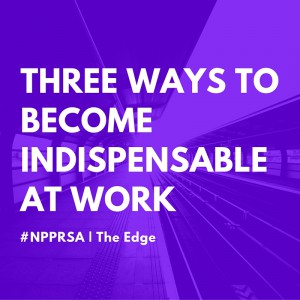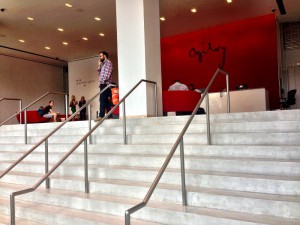 When I started my PR career, I focused on nailing the basics of PR – writing strong press releases, building solid media lists, writing great emails. I strove for accuracy and a job well done. As I’ve grown in my career, I’ve realized that while mastering the fundamental PR skills is paramount, I also need to always be looking for ways to add value to my organization. PR professionals who prove that they add real value to their organizations simply do better professionally – they are promoted, secure new jobs more easily, and are liked by coworkers. Here are a few strategies I’ve picked up on so far, and try to put in practice in my career.
When I started my PR career, I focused on nailing the basics of PR – writing strong press releases, building solid media lists, writing great emails. I strove for accuracy and a job well done. As I’ve grown in my career, I’ve realized that while mastering the fundamental PR skills is paramount, I also need to always be looking for ways to add value to my organization. PR professionals who prove that they add real value to their organizations simply do better professionally – they are promoted, secure new jobs more easily, and are liked by coworkers. Here are a few strategies I’ve picked up on so far, and try to put in practice in my career.
Go above and beyond.
Basic advice, but many PR professionals just do what absolutely needs to get done per their job description. They complete tasks delegated by their supervisor, and leave work when they finish them. This is a fine approach to work, but it’s not likely to get you promoted quickly. It’s like the old saying, dress for the job you want, not the one you have.
Show that you are worthy of the job that you want, instead of just doing a decent job at the one you have. Be the person who offers to stay late to finish a big project, or take some workload off of a coworker who is over-burdened. Communicate your interests and ideas to your supervisors. They will take notice of the team members who demonstrate passion, creativity, and ambition.
Build strong relationships with your coworkers.
PR is based on relationships. We’re focused so much on client and media relationships, that sometimes we forget about the other important kind of work-related relationship: coworker relationships. Think about the kind of coworker you personally would like to work with. For me, that person would be trustworthy, friendly, positive, encouraging, collaborative, helpful, drama-free, professional – try to be that person at work!
When you genuinely like the people you work with and they like you, you’re able to collaborate better, advocate for each other and increase your productivity. Get to know your coworkers outside of the office. Coffee dates, happy hours and exercise classes are all great ways to bond.
Manage up and make your supervisor’s life easier.
If you think about the purpose of a job in the most basic sense, it’s to make the life of your supervisor easier. This is especially true in an agency environment, where account coordinators support account executives, account executives support account managers, and so on.
Make sure every piece of work you turn into your supervisor – research, media lists, pitches, press releases, fact sheets – is absolutely spot-on and error-free. Attention to detail is so important in PR. Don’t drop the ball by turning in work with mistakes that could have easily been avoided by an extra review. When supervisors barely need to edit your work, they will appreciate you and ultimately view you as a necessary component of their own work life – making you irreplaceable.
If you quit your organization tomorrow, what kind of impact would it have on your team, and the company overall? Becoming indispensable at work is different from being good or even great at your job, and has everything to do with the value you add to your organization. What are some of your strategies for becoming that indispensable team member?
 Lauren Leger graduated from Boston University with a bachelor’s degree in communication, concentrating in public relations. She started her career while still in college at Boston-based PR firm, Zazil Media Group. Lauren relocated to Dallas, Texas in fall of 2014 and began working atThe Power Group as a PR account executive. She recently took on a new role as Power’s manager of digital strategy, where she brings her PR expertise to the digital realm of the business. Connect with her on LinkedIn and Twitter.
Lauren Leger graduated from Boston University with a bachelor’s degree in communication, concentrating in public relations. She started her career while still in college at Boston-based PR firm, Zazil Media Group. Lauren relocated to Dallas, Texas in fall of 2014 and began working atThe Power Group as a PR account executive. She recently took on a new role as Power’s manager of digital strategy, where she brings her PR expertise to the digital realm of the business. Connect with her on LinkedIn and Twitter.



